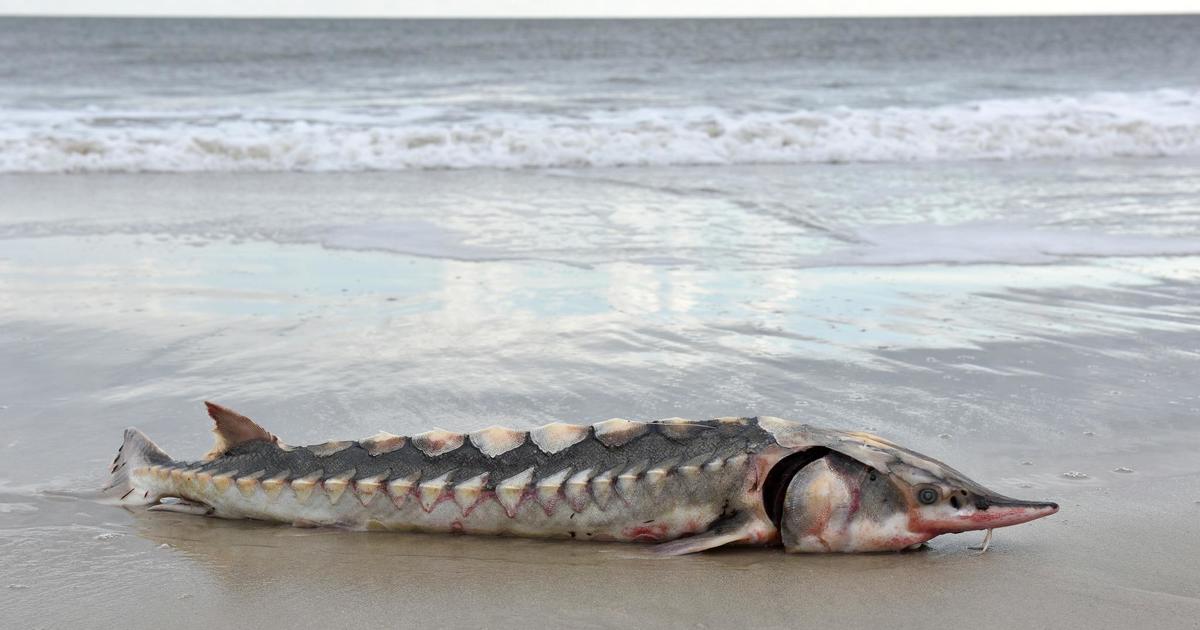A rare Atlantic sturgeon that lived on Earth with the dinosaurs washed up on a beach on the East Coast. A photographer snapped photos of the prehistoric and endangered fish on Assateague Island, which runs between Maryland and Virginia.
Atlantic sturgeon can be found from Canada to Florida. They first hatch freshwater rivers and then swim out to see sea as they get older, according to NOAA. They return to rivers to lay eggs when they become adults.
These fish can live up to 60 years and can grow to be a whopping 14 feet and 800 pounds. They look like prehistoric creatures because they are.
They are considered “living fossils,” meaning the species has gone virtually unchanged for millions of years, according to a study from the University of Michigan.
But their rareness comes from the fact that they are endangered, according to NOAA. These fish are threatened by fishing gear, boats, habitat degradation and habitat impediments like dams and other barriers.
A photographer named Allen Sklar shot images of the beached sturgeon on Assateague Island last month.
Sklar said the sturgeon he found was 37 inches.
While they are rare, a sturgeon washed up on the same beach in 2016 – and Sklar also photographed that one, Assateague Island National Seashore said on Facebook.
Unlike other dead fish, the sturgeon was not immediately eaten by birds because of its scutes, or bony plates that create a protective armor, the Assateague Island National Seashore post explained. Unlike fish with scales, this fish is too tough for birds to eat.
Atlantic sturgeon spawning still occurs in about 22 of their 38 historical spawning rivers in the U.S. and Canada. The largest population of Atlantic sturgeons is in the St. John River in Canada. An estimated 18,000 to 21,000 adult sturgeon lived in this river between 2013 and 2015, according to NOAA.
The four other main areas with Atlantic sturgeons have much less. The York River in Virginia had an estimated 75 adult individuals return to spawn in 2013. Since then, the annual estimates have ranged from 52 to about 219 per year, with a total adult population of approximately 300 individuals.

